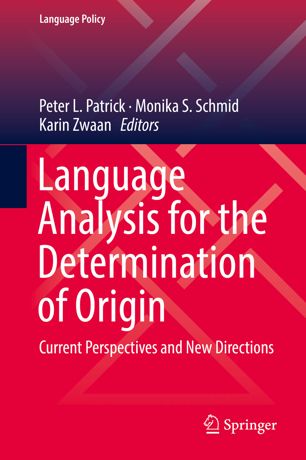

Most ebook files are in PDF format, so you can easily read them using various software such as Foxit Reader or directly on the Google Chrome browser.
Some ebook files are released by publishers in other formats such as .awz, .mobi, .epub, .fb2, etc. You may need to install specific software to read these formats on mobile/PC, such as Calibre.
Please read the tutorial at this link: https://ebookbell.com/faq
We offer FREE conversion to the popular formats you request; however, this may take some time. Therefore, right after payment, please email us, and we will try to provide the service as quickly as possible.
For some exceptional file formats or broken links (if any), please refrain from opening any disputes. Instead, email us first, and we will try to assist within a maximum of 6 hours.
EbookBell Team

5.0
50 reviewsThis comprehensive, up-to-date volume reports on current practices and use of Language Analysis for the Determination of Origin (LADO). Readers will find chapters on how it is done, where it is used, how it is used, and learn about recent developments on the use of LADO reports in judicial practice, and current controversies in the field. LADO is a highly controversial topic, and a relatively new branch of forensic linguistics that is used by most European and some non-European governments. When asylum seekers cannot submit documentary proof of their origin, their language can be analysed in order to assess whether their linguistic profile is in accordance with their stated origin. Around 10,000 such language analyses take place annually. This volume is based on the series of meetings of the Language and Asylum Research Group held between 2010 and 2012 and convened by the editors, and offers a state-of-the art perspective from researchers, practitioners, policymakers and stakeholders working on or with LADO.